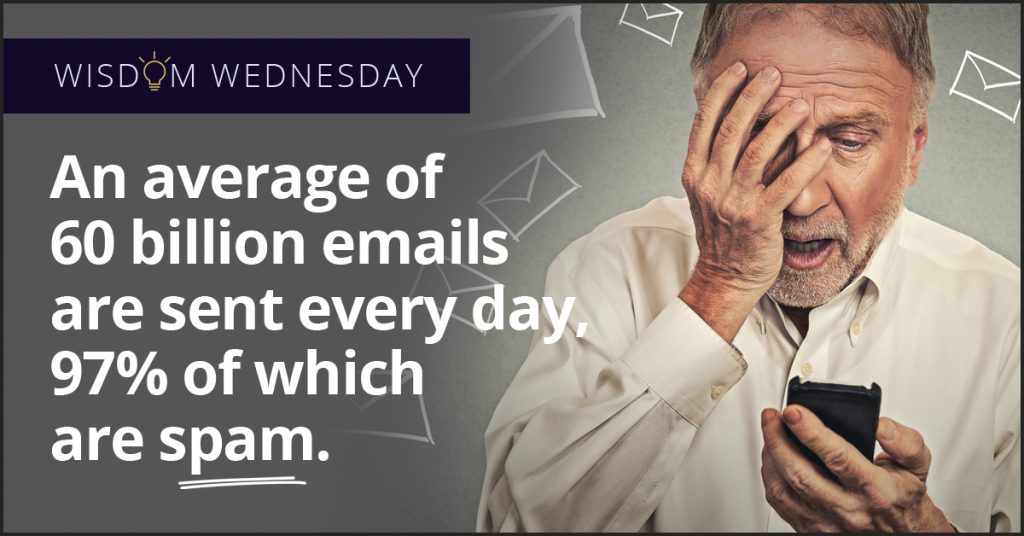-
Connect With Your Ottawa IT Service Company at (613) 828-1384
Connect With Your Ottawa IT Service Company at (613) 828-1384

Every day, businesses and individuals send over 205 billion emails all over the world. Though many of these messages contain valuable information, a large portion of them are spam. Receiving or sending spam exposes your business to a variety of risks, including:
Ruined Reputations
Many firms are unaware that their email accounts have been compromised, sending spam to current and future clients and partners. This can quickly ruin your firm’s reputation and make it harder for you to succeed in the long run. If clients and customers think you’re sending them spam intentionally, they will view you as untrustworthy. Even when they realize your accounts were hacked, they may conclude that you do not understand IT issues or take them seriously. Thus if anyone reports that you have been spamming them, you must promptly apologize and put a stop to the issue.
Malefic Malware
Be wary of spam messages that you receive, as they could harbor viruses, trojans, and other harmful programs. Malware can lock you out of essential programs, provide unauthorized access to sensitive information, or even crash your entire computer system. You should thus never open messages you suspect to be spam. If you don’t realize an email is spam until you have already opened it, do not reply to it or click on its links— not even to unsubscribe from the mailing list. The more you engage with spam, the more opportunities it has to transmit dangerous programs.
Subtle Scams
In addition to infecting your computer systems, spam writers also use more subtle tactics to cheat you. Junk mail may come in the form of a fake business offer, using the name and writing style of a real company that could be a potential supplier or partner. The scammer will try to convince you to pay them, supposedly for a service or venture that will help your business; if you comply, they will take your payment and leave you with nothing. To separate scams from real business propositions, look up the companies that claim to be sending the emails and contact them independently. If a company has no record of sending the message, the offer is not real.
Data Deliverance
Besides stealing money, scammers can also use spam mail to get you to hand over sensitive information. Phishing scams involve sending you mail under the name of a company or individual you trust, such as your bank, your health insurer, or one of your employees. The message will ask you to send over sensitive information that the company or individual would have access to.
In general, you should never send sensitive information over email to begin with. If you do receive a message from a trusted entity demanding such information, contact them at a different address or meet with them to confirm their request. Never expose your business to phishing scams.
Fuelled Networks strives to protect businesses throughout Ottawa from spam and all other risks. To learn more, call us at (613) 828-1384 or contact info@fuellednetworks.com today!